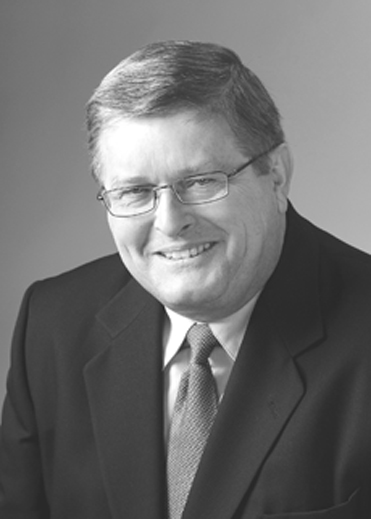
It’s Time to Give Back to
the Community
An interview with Victor Hetmanczuk, Executive Director of the
Ukrainian Canadian Social Services (
By Alex Chumak
Victor Hetmanczuk is both determined and resolved to make UCSS
Toronto a dynamic organization. As
Executive Director he seems to have the vision and stamina to accomplish
this. Appointed in 2007, he immediately
set out to use his expertise and business acumen to improve the delivery of
service of UCSST.
His background is varied and complimentary to the
position of Executive Director. After spending 6 years as Director of
Operations with the Daily Food Bank, and approximately 30 years as a chemical
engineer in the oil industry, Victor seems to have the criteria to lead a
non-profit organization such as the UCSST.
In an interview he stated “I discovered when at the Food Bank, the
importance of non-profit organizations and the important work that they do”.
In addition, he is active in church community
life. As 1st Vice President at St. Volodymyr Ukrainian Orthodox
Cathedral in
I recently sat down with Victor to discuss his
vision, plans and challenges at the UCSST.
Alex Chumak: What does UCSST currently offer?
Victor Hetmanczuk: Our Buro Porad
(Social Services Office) is perhaps the busiest offering assistance in all
aspects of human behaviour. Liaising with government agencies, offering short
term counselling, and making referrals to outside agencies are the highlights.
Last year, for example, we had 6,000 calls, interviews, and letters ranging
from housing, employment, immigration, citizenship, disability, and
translation. People need help in these matters and we are prepared to assist
them.
AC: UCSST seems to be a community service for
seniors. Can you explain this?
VH: UCSST has been designated by the Ontario Government
as an Elder Person Centre and funded accordingly. As such, we have a varied
program for seniors, but not necessarily only seniors. For example, we offer
social/recreational programs, a drop in centre, day trips, movie nights and
free income tax services to name a few.
AC: With an emphasis on physical education today,
is the UCSST providing a place for exercise for seniors?
VH: Yes. Twice weekly a professional leads our
seniors in exercises that are very well attended.
AC: What about assistance to
VH: We have Pomich Ukraini – last year we sent
14 tonnes of clothing, books, toys, wheelchairs etc. to needy families in
AC: Loneliness among seniors is perhaps the most
pressing problem. What is being done about it?
VH: Our volunteers are involved in the “Friendly
Visits” program, where in addition to visiting seniors, we provide Christmas
and Easter hampers to the needy ones. There is tremendous satisfaction in this
and greatly appreciated by the seniors.
AC: If anything, can the UCSST be criticized for
catering mainly to senior citizens?
VH: We are taking some initiative to expand our terms
of reference. For example, we will be providing a day camp this summer for
children ages 7-9 where heritage and language will be the focus. We equally
welcome non-Ukrainian speaking children.
Secondly, we are working on attracting the 20-30
year-old Ukrainians to the UCSST. A committee is working on ways and means of
accomplishing this. Thirdly, we will be establishing an “Abuse Hot Line” to be
staffed 24/7. This will give people an opportunity to call in emergencies on
issues such as spousal abuse, elder abuse as well as other related emergencies.
Fourthly, we are studying the feasibility of opening offices in
AC: You seem to have ambitious plans. What
challenges do you foresee?
VH: Primarily, it’s the funding – which can restrict
our work. We have to look for new funding sources – an outreach to the
community and public/private foundations. For example, we plan to have an open
house in October where people can see for themselves the work we do. Secondly,
we must do successful planning and recruit new staff members. We are constantly
looking for new interns. Thirdly, we have to partner with our churches. The
parish priests often have a finger on the pulse of their community – their
needs, aspirations, frustrations etc. I believe the UCSST can be a dominant
player in this equation.
AC: How flexible are you in carrying out these
programs?
VH: The UCSST Board of Directors sets the policy and
it is my job with our staff to carry it out. We have a great Board, truly
dedicated and progressive people who are of like mind to make UCSST a positive
organization in our community. I must also add that our staff and our
volunteers are dedicated and committed to help those who are in need.
AC: Lastly, what frustrations are you
experiencing?
VH: The main one is the inertia to change. Change,
as you know, is very difficult if the culture and procedures [of an
organization] have been established for a long time. In a rational, measured
way, I plan, with the Board’s approval, to change this and add new dimensions
to the UCSST.
AC: Thank you Victor and Best Wishes in your
endeavours!
Victor Hetmanczuk, Executive Director of the Ukrainian
Canadian Social Services (